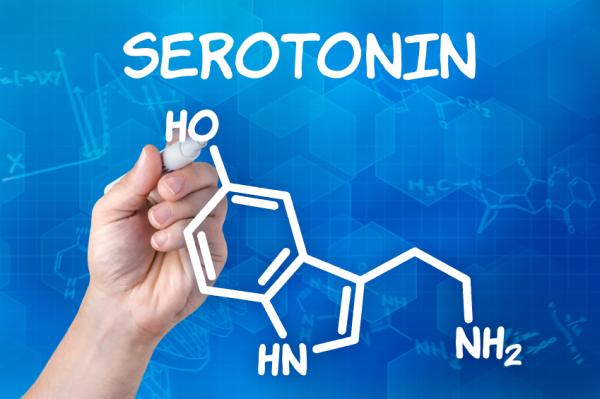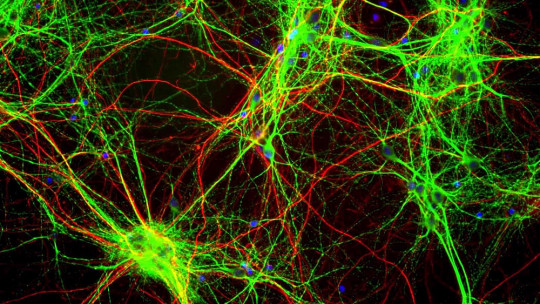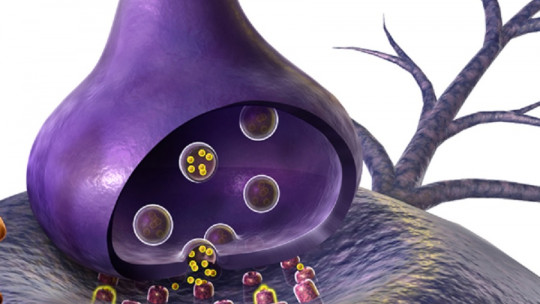
The human brain is an organ of such complexity that inside it there are thousands of chemicals interacting so that we can experience things and perceive reality as we do.
Our behavior has biological bases that decisively influence us, and Among these biological factors that make us who we are are substances such as serotonin Let’s see what makes this hormone so special, and how it influences our brain.
Serotonin: what effects does this hormone have on your body and mind?

Some of these substances can only be found in certain types of cells and have very specific functions (so much so that many of them have yet to be discovered), but others act both in the brain and outside of it. This is the case, for example, of serotonin, also known as 5-HT.
5-HT is deeply integrated into the functioning of the human body and memorizing all of its functions can be very intricate. However, in this summary you can learn six of the main effects that serotonin has on the human body
1. It has a fundamental role in digestion
Serotonin is a substance that behaves like a hormone in the blood and acts as a neurotransmitter in the brain. That is, serotonin is one of the communication units that neurons capture and emit to influence each other, creating brain activation dynamics and chain effects. Thus, serotonin favors the exchange of information between neurons and, beyond the brain, serves very different purposes. In fact, the highest concentrations of serotonin are not in the brain but in the gastrointestinal tract
It is in the intestines where one of the most relevant functions of serotonin becomes important: the regulation of digestion. Too high levels of serotonin are linked to the appearance of diarrhea, while an excessive deficiency of this substance can cause constipation. Besides, It also influences the appearance (or absence) of appetite
2. Regulates positive and negative moods
Serotonin can be found in large quantities by many parts of the body, and therefore a general imbalance in the production of this substance can have drastic effects on several factors that affect the way we feel and behave
Specifically, serotonin has been associated for many years with the symptoms of depression, since people with this type of disorder usually have low concentrations of 5-HT in their blood. However, it is not known to what extent it is serotonin deficiency that causes depression or vice versa.
3. Control the body temperature level
Among the functions of basic maintenance of the integrity of our body that we associate with serotonin is also the thermal regulation This is a very delicate balance, because a difference of a few degrees in body temperature can lead to the massive death of large groups of cellular tissues.
Neurons, for example, are especially sensitive in this regard.
4. It influences sexual desire
A correlation has been proven between serotonin levels and sexual libido. High levels of 5-HT are associated with a lack of sexual desire, while low levels would promote the appearance of behaviors aimed at satisfying this need.
In addition, serotonin also seems to have an effect on the ability of humans to fall in love and feel love for another person. You can discover it in this article:
5. Reduces aggressiveness levels
Serotonin also serves to stabilize emotional state of the human being in situations of tension. Specifically, it serves to inhibit aggressiveness and the violent behaviors that can arise from it. Thus, the most impulsive and violent people tend to have lower levels of serotonin acting on key points in the brain than those who are more peaceful.
Furthermore, this substance it gets along especially badly with testosterone a hormone that, by acting on neurons, making them more insensitive to serotonin, enhances aggressive behavior.
6. Regulates the sleep cycle
Throughout the day, serotonin levels rise and fall, describing the curves set by the circadian rhythm, which is the schedule our body follows to know when it is time to sleep and when it is not, and which therefore regulates our sleep and wakefulness. Thus, 5-HT levels tend to reach their maximum in the sunniest times of the day, while during deep sleep they drop to their minimum.
In this way, the production of serotonin influences regulating our ability to sleep, favoring or hindering falling asleep. Something similar happens with another substance called melatonin.
Discovering serotonin syndrome
Serotonin is found in all healthy humans, but too much of it can trigger problems. What happens when our body generates too much serotonin? It is not a trivial question, since there is a pathology associated with this excess of serotonin.
Excessive consumption of drugs against depression (so-called “antidepressants”), which are basically responsible for stimulating the production of the hormone serotonin, can have a negative effect on our body. You can discover it by reading this article, where we explain exactly what this syndrome consists of and what symptoms it presents:








